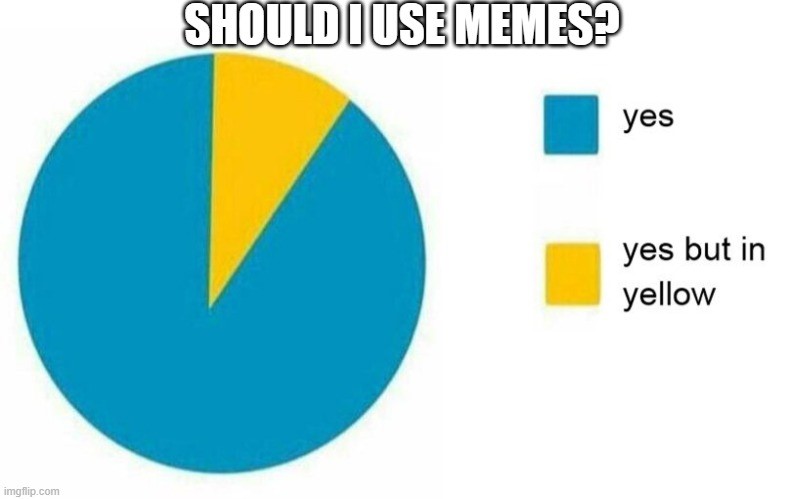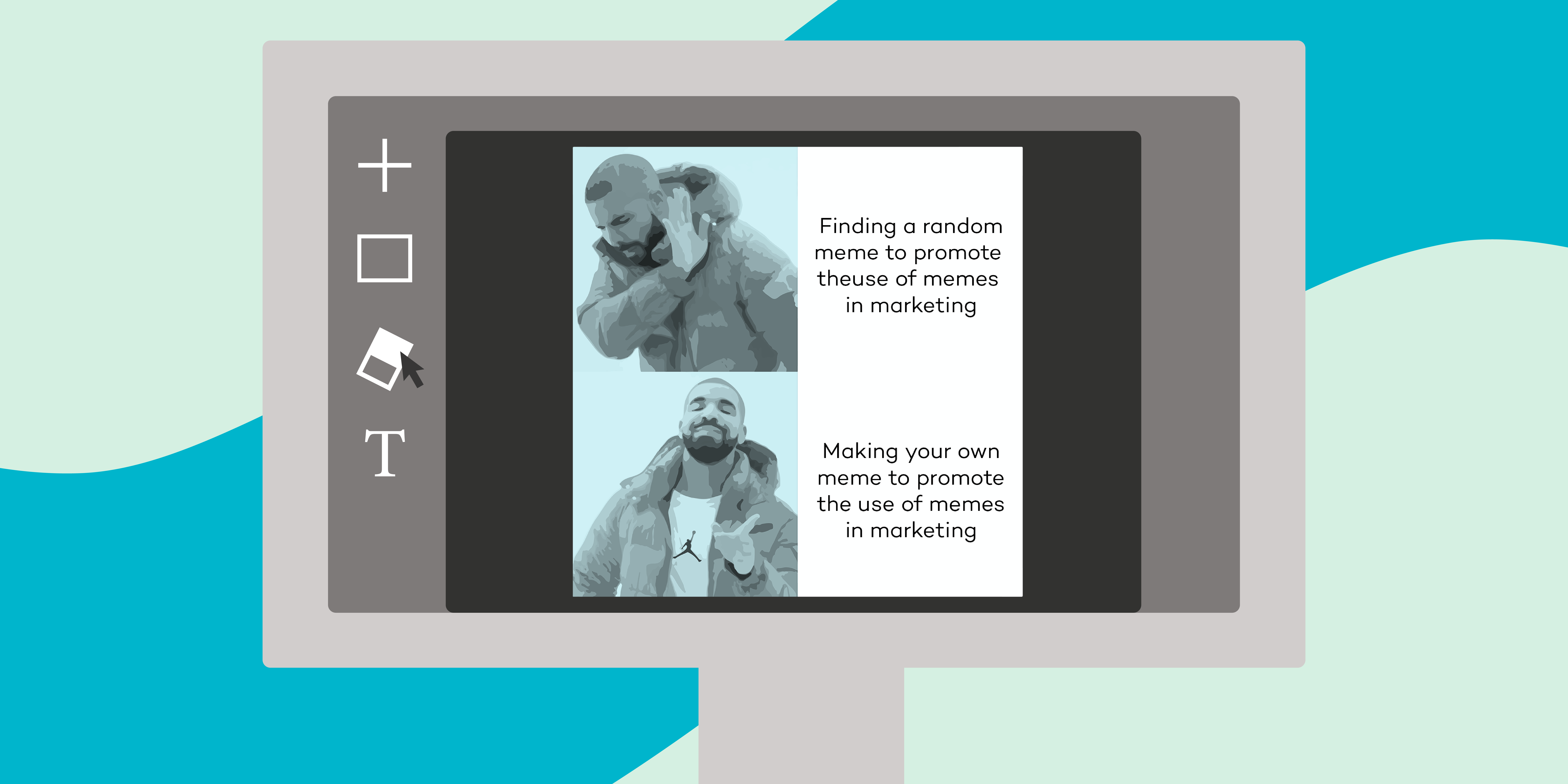Meme marketing has emerged as a powerful tool in the digital age, blending humor, relatability, and shareability to capture audience attention. By leveraging internet culture, brands can connect with younger, tech-savvy demographics in a way that feels authentic and engaging. Memes, often characterized by their viral nature, allow companies to tap into trending topics and create content that resonates on a personal level. However, this approach is not without risks, as misinterpretation or overuse can lead to backlash. This article explores the effectiveness of meme marketing, its potential pitfalls, and how businesses can strategically incorporate it into their campaigns to maximize impact.
What Are Your Thoughts on Meme Marketing?
Meme marketing has become a powerful tool in the digital age, leveraging humor and relatability to engage audiences. It taps into the cultural zeitgeist, making brands appear more approachable and relevant. However, its effectiveness depends on the brand's ability to strike a balance between being trendy and maintaining authenticity. Overuse or misuse of memes can lead to cringe-worthy campaigns that alienate audiences. When done right, meme marketing can drive virality, boost brand awareness, and foster a sense of community among consumers.
See Also Movies Related to Marketing or Selling?
Movies Related to Marketing or Selling?Why Is Meme Marketing So Effective?
Meme marketing works because it capitalizes on shared cultural references and humor, which resonate deeply with audiences. Memes are easily shareable, making them ideal for social media platforms where virality is key. They also humanize brands, making them feel more relatable and less corporate. By aligning with current trends, memes can create a sense of timeliness and relevance, which helps brands stay top-of-mind.
What Are the Risks of Meme Marketing?
While meme marketing can be highly effective, it comes with risks. Memes often have a short lifespan, and using outdated or irrelevant memes can make a brand seem out of touch. Additionally, memes can sometimes be misinterpreted or offend certain groups, leading to backlash. Brands must also ensure that their use of memes aligns with their core values and target audience to avoid appearing inauthentic.
See Also Reddit Has 731 Million Daily Active Users, How Are Marketers Not All Over This?
Reddit Has 731 Million Daily Active Users, How Are Marketers Not All Over This?How Can Brands Create Successful Meme Campaigns?
To create successful meme campaigns, brands should focus on staying current with trending topics and memes. They should also ensure that the humor aligns with their brand voice and audience preferences. Collaborating with influencers or content creators who understand meme culture can also enhance the campaign's authenticity. Finally, brands should monitor the performance of their meme campaigns and be ready to adapt quickly.
What Platforms Are Best for Meme Marketing?
Meme marketing thrives on platforms where visual content and humor are highly shareable. Instagram, Twitter, and TikTok are particularly effective due to their focus on quick, engaging content. Reddit and Facebook can also be useful, depending on the target audience. Brands should choose platforms where their audience is most active and where memes are a natural part of the content ecosystem.
See Also Google Sheets Skills for Digital Marketers
Google Sheets Skills for Digital MarketersHow Does Meme Marketing Impact Brand Perception?
Meme marketing can significantly impact brand perception by making a brand appear more relatable, fun, and modern. However, if done poorly, it can make a brand seem desperate or out of touch. The key is to use memes in a way that feels organic and authentic to the brand's identity. When executed well, meme marketing can strengthen a brand's connection with its audience and enhance its overall image.
| Aspect | Impact |
|---|---|
| Relatability | Increases audience connection |
| Virality | Boosts brand visibility |
| Authenticity | Enhances brand trust |
| Timeliness | Keeps brand relevant |
| Risk of Backlash | Potential for negative perception |
Why is meme marketing important?

 How to find anybody's email address (especially for outreach)?
How to find anybody's email address (especially for outreach)?Why is Meme Marketing Effective for Audience Engagement?
Meme marketing is highly effective for audience engagement because it leverages humor, relatability, and cultural relevance. Memes are easily shareable and resonate with audiences, making them a powerful tool for brands to connect with their target demographic. Here are three key reasons:
- Humor: Memes often use humor to capture attention, making them more likely to be shared and remembered.
- Relatability: Memes tap into shared experiences or emotions, creating a sense of connection between the brand and the audience.
- Cultural Relevance: Memes reflect current trends and pop culture, keeping brands relevant and up-to-date.
How Does Meme Marketing Boost Brand Visibility?
Meme marketing boosts brand visibility by capitalizing on the viral nature of memes. When a meme resonates with an audience, it spreads rapidly across social media platforms, increasing brand exposure. Here’s how it works:
- Shareability: Memes are designed to be shared, amplifying reach organically.
- Platform Algorithms: Social media algorithms favor engaging content, increasing the likelihood of memes appearing in users' feeds.
- Community Building: Memes encourage interaction, fostering a sense of community around the brand.
Why is Meme Marketing Cost-Effective?
Meme marketing is cost-effective because it requires minimal resources compared to traditional advertising. Brands can create or repurpose memes with little to no budget, making it an accessible strategy. Key points include:
- Low Production Costs: Memes are simple to create, often requiring only an image and text.
- Organic Reach: Memes spread naturally, reducing the need for paid promotions.
- User-Generated Content: Audiences often create and share memes related to brands, further reducing costs.
How Does Meme Marketing Appeal to Younger Audiences?
Meme marketing appeals to younger audiences, particularly Millennials and Gen Z, who are highly active on social media and value authenticity. Here’s why it works:
- Cultural Language: Memes are a form of communication for younger generations, making them more relatable.
- Authenticity: Memes feel less like traditional ads and more like organic content, which younger audiences prefer.
- Trend Awareness: Younger audiences are quick to adopt and share trends, making memes a natural fit.
Why is Meme Marketing Versatile Across Platforms?
Meme marketing is versatile because it can be adapted to various social media platforms, from Instagram to Twitter and TikTok. This adaptability ensures that brands can reach diverse audiences. Key aspects include:
- Platform-Specific Formats: Memes can be tailored to fit the style and tone of each platform.
- Cross-Platform Sharing: Memes created for one platform often gain traction on others, maximizing reach.
- Engagement Tools: Platforms like TikTok and Instagram offer features like stickers and filters that enhance meme sharing.
What are the pros and cons of meme marketing?
-jpg.jpeg?width=1150&height=602&name=Pros%20of%20Meme%20Marketing%20(1)-jpg.jpeg)
Advantages of Meme Marketing
Meme marketing offers several benefits for brands looking to connect with their audience in a relatable and engaging way. Here are some key advantages:
- High Engagement: Memes are highly shareable and often go viral, increasing brand visibility and engagement.
- Cost-Effective: Creating memes is relatively inexpensive compared to traditional advertising methods.
- Relatability: Memes resonate with audiences, especially younger demographics, as they reflect current trends and humor.
- Quick to Produce: Memes can be created and distributed rapidly, making them ideal for timely campaigns.
- Brand Personality: Memes allow brands to showcase their personality and connect with audiences on a more informal level.
Disadvantages of Meme Marketing
While meme marketing has its perks, there are also potential drawbacks that brands should consider:
- Short Lifespan: Memes often lose relevance quickly, making them a short-term strategy.
- Risk of Misinterpretation: Memes can be misunderstood or taken out of context, potentially harming a brand's reputation.
- Overuse: Excessive use of memes can make a brand appear unoriginal or desperate for attention.
- Limited Audience: Not all demographics may understand or appreciate meme humor, limiting its effectiveness.
- Copyright Issues: Using popular meme formats without proper attribution can lead to legal complications.
How Meme Marketing Boosts Brand Awareness
Meme marketing can significantly enhance brand awareness when executed correctly. Here’s how:
- Viral Potential: Memes are designed to be shared, increasing the likelihood of reaching a wider audience.
- Cultural Relevance: Memes tied to current events or trends can make a brand appear more relevant and up-to-date.
- Community Building: Memes foster a sense of community among followers who share similar humor and interests.
Challenges in Creating Effective Meme Campaigns
Creating a successful meme marketing campaign comes with its own set of challenges:
- Staying Relevant: Brands must stay updated with the latest trends to create timely and relatable memes.
- Balancing Humor and Brand Message: Striking the right balance between humor and conveying the brand’s message can be tricky.
- Avoiding Offense: Memes that are too edgy or controversial can alienate audiences or spark backlash.
Best Practices for Meme Marketing
To maximize the effectiveness of meme marketing, brands should follow these best practices:
- Know Your Audience: Understand the humor and preferences of your target demographic.
- Keep It Simple: Memes should be easy to understand and visually appealing.
- Be Authentic: Avoid forcing memes; they should align naturally with your brand’s voice and identity.
- Monitor Trends: Stay updated on trending topics and meme formats to remain relevant.
- Test and Iterate: Experiment with different meme styles and analyze their performance to refine your strategy.
Why you should use memes?

Why Memes Are Effective for Communication
Memes are a powerful tool for communication because they combine visuals and text to convey messages quickly and effectively. They are easily shareable and resonate with a wide audience due to their relatable and humorous nature. Here are some reasons why memes are effective:
- Simplicity: Memes distill complex ideas into simple, digestible formats.
- Relatability: They often reflect common experiences, making them highly relatable.
- Engagement: Memes encourage interaction, such as sharing, commenting, or creating new versions.
Memes as a Tool for Branding
Using memes in branding can help companies connect with their audience on a more personal level. Memes humanize brands and make them appear more approachable. Here’s how memes can enhance branding:
- Increased Visibility: Memes are highly shareable, increasing brand exposure.
- Cultural Relevance: They show that a brand is in tune with current trends and culture.
- Emotional Connection: Humor and relatability foster a stronger emotional bond with the audience.
Memes for Educational Purposes
Memes can be used as an innovative way to teach and learn. They make educational content more engaging and memorable. Here’s why memes work well in education:
- Retention: Visual and humorous content is easier to remember.
- Accessibility: Memes simplify complex topics, making them accessible to a broader audience.
- Motivation: They make learning fun and less intimidating.
Memes often serve as a medium for social and political commentary. They allow people to express opinions in a way that is both impactful and entertaining. Here’s how memes function as commentary:
- Satire: Memes use humor to critique societal issues.
- Virality: They spread quickly, amplifying the message.
- Community Building: Shared memes create a sense of unity among like-minded individuals.
Memes for Marketing Campaigns
Incorporating memes into marketing campaigns can significantly boost engagement and reach. They are cost-effective and align well with digital marketing strategies. Here’s why memes are ideal for marketing:
- Cost-Effective: Creating memes is inexpensive compared to traditional advertising.
- Targeted Appeal: Memes can be tailored to specific demographics or interests.
- Shareability: Their viral nature ensures wider reach with minimal effort.
What is the future of meme marketing?

The Role of AI in Meme Marketing
The future of meme marketing will heavily rely on artificial intelligence (AI) to create and distribute content. AI tools can analyze trends, predict viral content, and even generate memes tailored to specific audiences. This will allow brands to stay relevant and engage with their audience in real-time.
- AI-generated memes will become more personalized and context-aware.
- Brands will use AI to track meme performance and optimize campaigns.
- AI will help in identifying cultural nuances to create region-specific memes.
Meme marketing will become more integrated with social media platforms, leveraging features like stories, reels, and live streams. Platforms will likely introduce tools specifically designed for meme creation and sharing, making it easier for brands to connect with their audience.
- Social media platforms will offer built-in meme templates for quick content creation.
- Brands will use interactive memes to engage users through polls, quizzes, and challenges.
- Platforms will prioritize meme content in their algorithms, increasing visibility.
User-Generated Content and Community Engagement
The future of meme marketing will see a rise in user-generated content (UGC), where audiences actively participate in creating and sharing memes. This approach fosters a sense of community and authenticity, making brands more relatable.
- Brands will encourage UGC campaigns to build stronger connections with their audience.
- Community-driven memes will enhance brand loyalty and trust.
- Brands will use hashtag challenges to amplify meme reach and engagement.
Adaptation to Emerging Trends and Formats
Meme marketing will continue to evolve by adapting to emerging trends and new content formats. Brands will need to stay agile and responsive to cultural shifts to remain relevant in the fast-paced digital landscape.
- Brands will experiment with short-form video memes on platforms like TikTok and Instagram Reels.
- Memes will incorporate augmented reality (AR) and virtual reality (VR) for immersive experiences.
- Real-time meme creation will become essential to capitalize on current events and trends.
Ethical Considerations in Meme Marketing
As meme marketing grows, ethical considerations will play a crucial role. Brands will need to ensure their content is respectful, inclusive, and does not exploit sensitive topics or communities.
- Brands will establish guidelines for meme creation to avoid controversies.
- There will be a focus on diversity and inclusion in meme content.
- Transparency in sponsored meme content will become a priority to maintain trust.
Frequently Asked Questions from Our Community
What is meme marketing and why is it effective?
Meme marketing is a strategy that leverages popular internet memes to promote brands, products, or services. It is effective because memes are highly relatable, shareable, and often humorous, making them a powerful tool for engaging audiences. By tapping into current trends and cultural references, brands can create content that feels authentic and resonates with their target audience. Additionally, memes are typically low-cost to produce and can quickly go viral, providing significant reach and visibility.
How can businesses use meme marketing without appearing forced or inauthentic?
To use meme marketing effectively, businesses must stay updated on current trends and understand their audience's sense of humor. The key is to create memes that align with the brand's voice and values while feeling natural and relevant. Forced or outdated memes can come across as cringeworthy and damage a brand's credibility. Collaborating with influencers or meme creators who understand the culture can also help ensure authenticity. Above all, businesses should avoid overusing memes or trying too hard to be cool.
What are the risks associated with meme marketing?
While meme marketing can be highly effective, it also carries risks. Memes often rely on humor and cultural references that can quickly become outdated or misinterpreted. A poorly executed meme can offend audiences or damage a brand's reputation. Additionally, memes are inherently unpredictable, and their viral nature means they can spread beyond the intended audience, sometimes leading to unintended consequences. Businesses must carefully consider the context and potential impact of their meme campaigns to avoid backlash.
Can meme marketing work for all types of businesses?
Meme marketing is not a one-size-fits-all strategy and may not suit every business. It tends to work best for brands targeting younger, internet-savvy audiences who are familiar with meme culture. Industries like entertainment, fashion, and tech often see success with this approach. However, more traditional or serious industries, such as finance or healthcare, may find it challenging to incorporate memes without compromising their professional image. Ultimately, businesses should evaluate their target audience and brand identity before diving into meme marketing.
Leave a Reply


Articles of interest